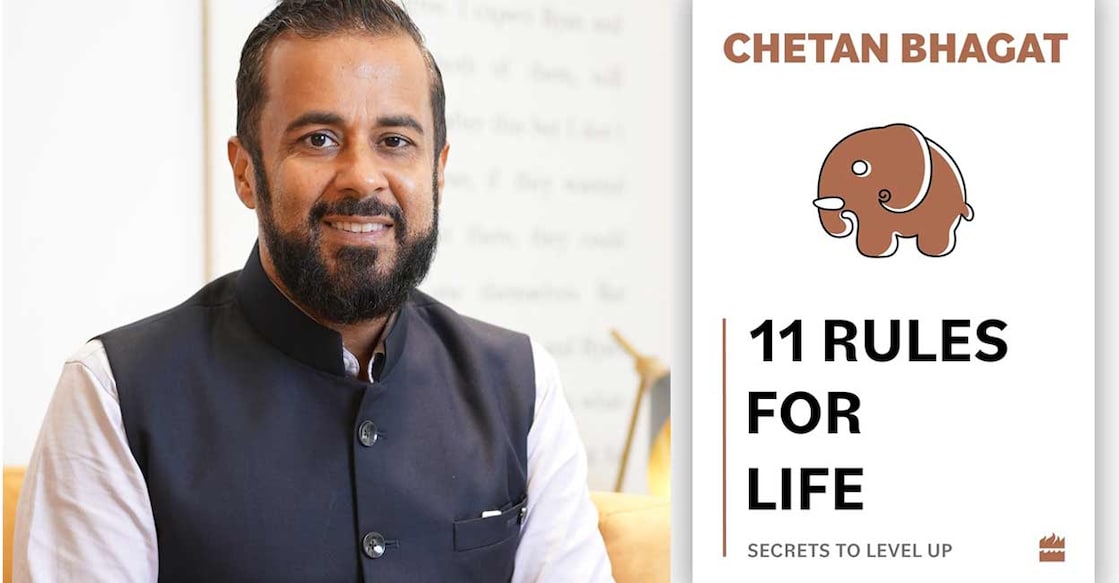Chetan Bhagat on age of attention war, possible solutions

Mail This Article
New Delhi: The world is witnessing a generation for whom the exercise of reading books is fast becoming a forgotten past. The torrent of visual and audio content, fiction or otherwise, through digital media has completely taken over the time-space of connoisseurs of art and literature. So, it becomes hard to promote a book among once-avid-readers, no matter how great is the work.
The best-selling author, Chetan Bhagat, who moved from romance to mystery while keeping the romance in mystery, points out the key facts of the scenario, He believes that we are living in an age of attention war where Instagram and YouTube are big players, and it has become increasingly hard to write simple books that can compete with them.
“I thought a murder mystery makes for a more gripping read. Secondly, it just gave me a challenge. I have moved to a motivational book like ‘11 Rules For Life’ and want to do diverse books and different things, which makes sense for my readers and me. It does require more research as it is new, and not something I have done before,” says Chetan Bhagat whose ‘11 Rules For Life.’ is now available as an audiobook by 'Audible'.
Excited by its new avatar, the author finds it fascinating that it can be accessed on the phone and people can listen to it while doing other tasks. “Another great thing about the audiobook is that it is in my voice. I narrate it the way I intended to say it. There are a lot of personal stories of mine that I have put in this book,” he says.
Bhagat, whose novels focus on youth and urban India started writing two decades back, and debuted with 'Five Point Something', admits that he could never imagine the kind of success he has grabbed back then.
“It was quite hard to get my first book published. It has been two decades and people still read me, and are now listening to me through audiobooks. The fact that my writing can transcend time and mediums is fascinating,” he smiles.
For someone who holds an MBA degree, and has written around 14 books, the process of writing never gets stale as he feels that through this tool, his ideas, thoughts and expressions can reach a vast majority.
“My first book is still out there... The transferring of knowledge, feelings, and emotion, through the simple written word is fascinating to me,” asserts Bhagat who was listed in Time magazine's list of 'World's 100 Most Influential People' in 2010.
This author, who has been subjected to much trolling feels it is not important to react to everything someone says. “Those who love me, read my work. And that is what matters to me.”
Considering several of his works have been adapted into films including 'Hello', '3 Idiots', 'Nanban', 'Kai Po Che', 'Half Girlfriend' and '2 States', he feels lucky and adds that for many others, deals have been done -- some are in the process while others stuck.
“But then, that is the nature of the film business. It takes a long time to execute. But I was lucky and went on to write the screenplay of ‘Kai Po Che’ for which I won the Filmfare award. So, it's been great. I want to do more for OTT, but I have not got the right opportunity yet.”
Talk to him about his process and he stresses that it starts with thinking about an idea for a long time. While some ideas come and go away, others stick in his head. And the latter carries the potential to become full stories and books.
“Then I take my time fleshing out the characters, figuring out what will happen. About 60 to 70 per cent of the story is there in my head before I even start writing. I would not say 100 per cent as that would kill the fun and mystery for me when I am writing, but broadly, I need to know what I am writing. Of course, one needs to have the discipline of writing every day,” concludes the author who is thinking about writing another book and working on his health, and relationships to get the balance right.
(With inputs from IANS)

